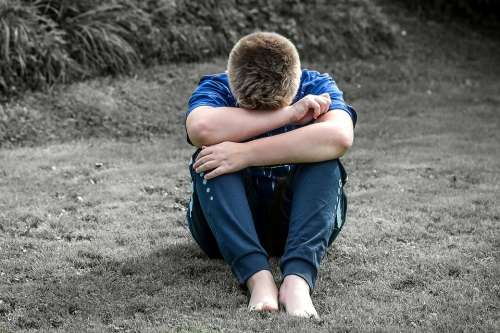Credit: University of Bristol
Over 700 children and young people are to take part in the largest clinical trial ever undertaken in Chronic Fatigue Syndrome (CFS), which affects up to two per cent of young people, most of whom do not have access to treatment.
Recruitment to the trial begins today (November 1) and will investigate whether FITNET-NHS (Fatigue In Teenagers on the interNET) is effective and offers value for money compared to Activity Management for children with CFS (also known as Myalgic Encephalopathy or ME).
For the first time, children and young people in both clinical groups of the trial will receive treatment at home. In the FITNET-NHS group, children and young people will receive treatment on line. In the control group, children will receive a treatment called Activity Management using video conferencing.
FITNET delivers Cognitive Behavioural Therapy (CBT) to young people with CFS/ME and their parents using e-consultations which means children can be treated at home. It was shown to be effective in the Netherlands in 2012 (63 per cent recovered at six months compared to 8 per cent who received usual care).
However, it is not known if the treatment would work in the NHS, and whether FITNET-NHS is value for money. This trial will answer these questions and also find out whether treatment works for the smaller group of children with CFS/ME who develop problems with low mood or anxiety.
Mary-Jane Willows is Chief Executive of the Association of Young People with ME (AYME), a charity which provides support for children and young people with ME, as well as professionals in the health, education and social care sector. She said: "We desperately need treatment for children with ME that they can get wherever they are in the UK. Most children cannot have treatment even though treatment improves their chance of recovery. Children tell us they just want to get better."
CFS/ME is a debilitating disease which has a major impact on the lives of those affected, causing persistent exhaustion that doesn't go away with rest or sleep. About a third of children go on to develop additional problems with low mood or stress but we do not know how to treat this.
NICE guidance stipulates that children with CFS/ME should be offered referral to specialist services immediately if their condition is severe, or within three months if they are moderately affected, and within six months if mildly so. However, only an estimated ten per cent of UK children have access to a local NHS specialist service, which means they cannot access treatment without travelling long distances.
Lead investigator Esther Crawley, Professor Child Health in Bristol's School of Social and Community Medicine, said: "Children and their parents often travel a very long way to be seen in my clinic which is hard for families and makes effective treatment difficult. In this study, children in both the control group and the test group will be offered specialist treatment. We do not know which one is best but we need to find out. Children with CFS/ME are desperate for specialist treatment and we need to think of new ways to deliver it.
Professor Stephen Holgate, Medical Research Council Clinical Professor of Immunopharmacology and Honorary Consultant Physician within Medicine at the University of Southampton, said: "CFS/ME is an important disabling condition. It has been chronically underfunded for years. Patients deserve high quality research like this study."
Provided by University of Bristol




















